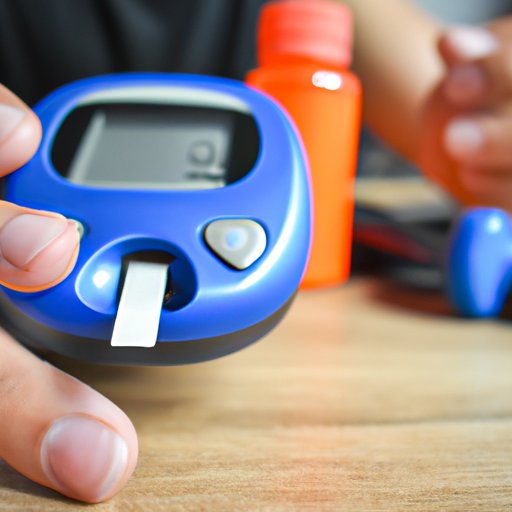
Does Exercise Raise Blood Sugar? Exploring the Relationship Between Physical Activity and Glucose Control
For individuals living with diabetes, controlling blood sugar levels is a top priority. Diet, medication, and monitoring are all essential components of diabetes management, but what about exercise? Many people assume that exercise automatically lowers blood sugar levels, but the truth is a bit more complex. Here, we’ll explore the relationship between exercise and blood sugar levels, debunk common myths, and provide practical tips for incorporating physical activity into a diabetes management plan.
The Surprising Truth About Exercise and Blood Sugar Levels
It’s a common misconception that exercise always leads to lower blood sugar levels. In reality, physical activity can initially raise blood sugar levels in individuals with diabetes. This phenomenon occurs because exercise triggers the release of stress hormones like cortisol and adrenaline, which can cause the liver to release glucose into the bloodstream.
However, this initial rise in blood sugar levels is temporary and generally subsides within a few hours. Furthermore, regular exercise can actually improve insulin sensitivity over time, making it easier for the body to efficiently use glucose and leading to lower blood sugar levels overall.
Research also supports the idea that exercise is beneficial for glucose control in individuals with diabetes. One study found that aerobic exercise improved glucose uptake in muscles for up to 48 hours after a workout, while resistance training increased glucose uptake in muscles for up to 24 hours afterwards.
Why Your Workout Might Be Spiking Your Blood Sugar
While exercise can ultimately lead to lower blood sugar levels, there are several factors that can cause glucose levels to rise during a workout. One common culprit is glycogen production, which occurs when the body stores glucose in muscles for energy later on. This process can cause blood sugar levels to increase temporarily during and after exercise.
Another factor that can influence blood sugar levels during exercise is carbohydrate intake. Consuming too many carbohydrates before or during a workout can cause blood sugar levels to rise, while not consuming enough can lead to low blood sugar levels.
Stress hormones like cortisol and adrenaline can also have an impact on blood sugar levels during exercise. These hormones are released in response to physical exertion and can cause the liver to release glucose into the bloodstream.
If you’re concerned about managing your blood sugar levels during exercise, there are several strategies you can try. Monitoring your blood sugar frequently before, during, and after workouts is a good starting point. In addition, adjusting your carbohydrate intake to meet your individual needs and adjusting medication as needed can help keep blood sugar levels in check.
The Benefits of Exercise on Blood Sugar Control
Despite some of the challenges that come with managing blood sugar levels during exercise, the benefits of physical activity for diabetes management are clear. One major benefit is improved insulin sensitivity, which can make it easier for the body to regulate glucose levels even outside of exercise.
Exercise can also help reduce the risk of type 2 diabetes and cardiovascular disease, both of which are common complications in individuals with diabetes. In fact, one study found that regular exercise reduced the risk of developing type 2 diabetes by up to 58%.
Incorporating exercise into a diabetes management plan doesn’t have to be complicated. Simple activities like walking, biking, or swimming can have a significant impact on glucose control. It’s also important to develop a routine that works for your schedule and fitness level, and to work with a healthcare provider to adjust medication and monitor blood sugar as needed.
The Link Between High-Intensity Exercise and Blood Sugar Levels
While any type of physical activity can be beneficial for diabetes management, high-intensity exercise can have a unique impact on blood sugar levels. Studies show that high-intensity exercise can lead to temporary spikes in blood sugar levels, followed by rapid drops once the workout is complete.
For individuals with diabetes, it’s important to monitor blood sugar levels closely during and after high-intensity workouts to prevent dangerous drops or spikes. Adjusting carbohydrate intake and medication as needed can help manage blood sugar levels during these more intense workouts.
Understanding the Science of Exercise and Blood Sugar Regulation
For those interested in a deeper dive into the science behind how exercise affects blood sugar levels, it’s important to understand the role of insulin, glucagon, and adrenaline in regulating glucose in the body.
Insulin is a hormone produced by the pancreas that helps the body use glucose efficiently. Glucagon is another hormone produced by the pancreas that signals the liver to release glucose into the bloodstream. Adrenaline is a stress hormone that can also trigger the release of glucose from the liver, particularly during high-intensity exercise.
The type of exercise being performed also has an impact on blood sugar levels, with endurance training generally leading to greater improvements in glucose uptake compared to strength training. However, any type of physical activity is beneficial for glucose control and overall health.
Conclusion
While there is some nuance to the relationship between exercise and blood sugar levels, incorporating physical activity into a diabetes management plan can be incredibly beneficial. Exercise can improve insulin sensitivity, decrease the risk of complications, and provide a range of additional health benefits. With the right monitoring, medication adjustments, and individualized approach, exercise can be a powerful tool for diabetes management.
If you have diabetes or are concerned about your blood sugar levels, talk to a healthcare provider before starting any new exercise routine. They can help you develop an individualized plan that meets your needs and gives you the best chance at success.





